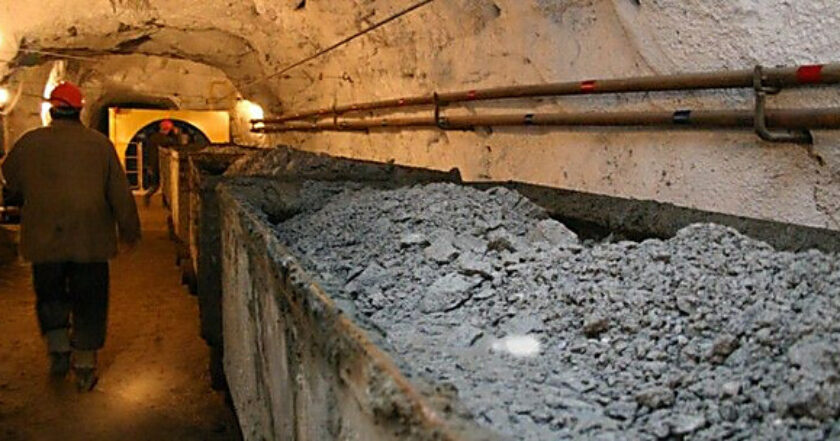Ukrainian women start working in coal mines solving wartime staff shortage

After over a thousand mine workers went to fight Russia's invasion, a coal enterprise in eastern Ukraine suffered a huge staff shortage.
To replace the men who went to defend their homeland, Ukrainian women went to work in the mines for the first time in history, the Reuters report says.
About 400 women work underground at DTEK coal mines in eastern Ukraine. The journalists visited one of these mines, but its management asked not to disclose the exact location of the enterprise and not to name the names of the interviewed workers for security reasons.
One of the workers Reuters spoke to is 22-year-old Khrystyna, who has been in the role of a technician 470 meters underground for five months, maintaining electric trains that transport workers.
After more than a thousand of its workers went to fight Russia's invasion, a coal mining enterprise in eastern Ukraine suffered a huge staff shortage. Its answer was to allow women to work underground for the first time in its history https://t.co/K2UZTwxVLS
— Reuters (@Reuters) November 22, 2023
Khrystyna went to work in the mine right at the beginning of the all-out war, because she lost her main job.
Her hometown of Pavlohrad is located 100 kilometers from the front line, but it is also often hit by Russian missiles. Before working at the mine, Khrystyna overcame the fear of leaving her 4-year-old son Denys at home with his grandmother.
The girl's older brother also worked at the enterprise but joined the army two weeks after the start of the full-scale Russian war.
"Our boys were taken to the front, and now we need to support them: there is no one else to work in the mine now."
Khrystyna admits that the work is not easy: the heavy battery covers and the steam can be unpleasant. However, she says the wage is good, and she feels a duty to help those who have gone to war.
DTEK, the owner of the mine where Khrystyna works and Ukraine's largest private energy company, said that about 3,000 of its 20,000 miners are now fighting in the military ranks.
Of the 1,000 miners from this mine and a neighboring company who have gone to war, 42 have been killed.
Although some women worked in the mines before the war, the government banned them from doing physically demanding work. But when the ban was lifted, DTEK mines now employ about 400 women – although this is only 2.5% of the total number of underground workers.
Women perform only auxiliary underground work that does not require strenuous physical labor.
"We do everything on the same level as men – unless it's something very heavy that we can't lift," said Natalia, 43, who also works as a train technician.
Natalia used to work in an electronics store until she lost her job due to the Russian invasion. Her 19-year-old son also works at the mine.
"Actually, I had been convincing him not to go and work there," she recalled, but she said she was now happily working in the mine and planned to stay, even after the war.
Despite the war, DTEK invested over $100 million in coal mining enterprises in 2022 to ensure the reliable operation of thermal power plants.






















































